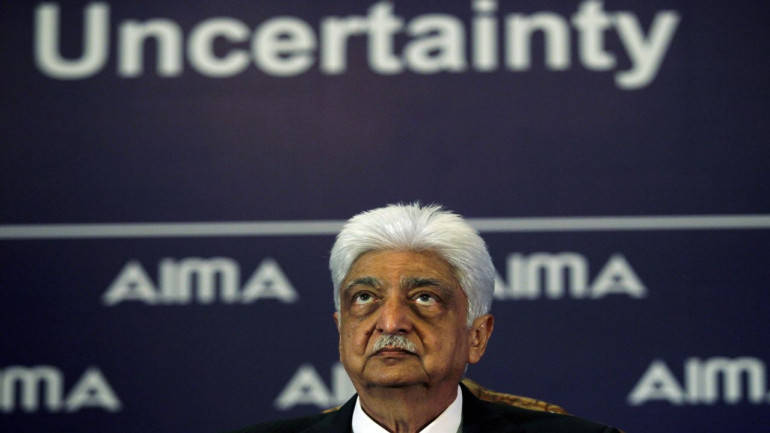
There are many sides to Azim Premji, the second richest man in India.
Of course, it includes integrity, philanthropy and intense passion when it comes to work that he is well known for. On the other hand is the less known side of him – one that nurtures talent. There are many entrepreneurs and leaders he nurtured purely by being who he is.
In him, many saw the leadership style and ethics of running a business that they wanted to emulate. This includes Mindtreefounders such as Krishnakumar Natarajan, Rostow Ravanan and Subroto Bagchi, and Suresh Vasawani, former CEO of Wipro, who went on to hold key positions in Dell, IBM before starting his own venture capital and private equity fund.
It is hard not to be influenced by Premji’s ways, recalled Natarajan, Chairman, Mindtree during an interaction with Moneycontrol. “He was a great role model,” he said.
“In my early days as a campus recruit, I got to know him and observed him, you would notice a lot of the ability to become a great professional and you get influenced by some of those actions. This you then start inculcating in the way you work,” he explained.
This is especially true for business people who saw Premji’s work ethics in close quarters like Natarajan himself. Rostow Ravanan, co-founder, Mindtree, agrees. “He is a very tall and respectable leader. We have learnt a lot from him when working there,” he added.
Premji took over the reins of Wipro in 1966, when he was merely 21. He had to drop out of Standford, where he was doing his engineering, and take over the company after the untimely demise of his father Mohammed Hasham Premji.
Wipro was then a company making vegetable oil. Under his leadership the company grew to become a conglomerate spanning IT, consumer care and energy taking it to $11 billion in annual revenues.
Premji’s business acumen was what changed the gears for Wipro. In 1980 the company forayed into technology business by making personal computers after the exit of IBM in India and slowly to IT services that now accounts for about $8.1 billion of its group revenues.
But he did not stop there though. He diversified Wipro business by entering into lighting segment with compact fluorescent lamp (CFL), energy sector and medical devices through joint venture with GE Healthcare.
As great a business man he is, he was more of a compassionate capitalist, is how Mohandas Pai, former Infosys CEO describes Premji having interacted with him when he was the CFO of Infosys and now as an investor.
“Throughout his life he has led a very frugal existence, never showing off his wealth. He is a compassionate capitalist among the best in the world. He has given away all the billions he has earned through his career for the Foundation and public welfare,” Pai said.
Premji has donated two-thirds of his wealth, worth $21 billion, for charity. In fact with $21 billion Premji is among the world’s top philanthropists. Wipro’s philanthropic arm Azim Premji Foundation has done significant work in educational space by improving levels of teaching in villages.
Not only has he set high standards for ethical conduct of business, but also in giving back to the society.
It is yet another face of Premji that people wish to emulate. This has not only inspired Indians to follow suit but also the like of Microsoft co-founder Bill Gates, who said in a tweet, “I’m inspired by Azim Premji’s continued commitment to philanthropy. His latest contribution will make a tremendous impact.”
Talking about his philanthropic work, Natarajan of Mindtree said, “I think he is setting a new benchmark in social space for many professional who want to give back to the society.”
However, with his exit, it is an end of an era for Wipro, which has seen a slowdown in its IT business over the last few years. In 2018, HCL Technologies unseated Wipro to become the third largest IT services company in India.
Wipro’s FY19 revenue stood at $8.1 billion compared to $8.6 billion for HCL Technologies, $21 billion for TCSand $11.8 billion for Infosys. Though Wipro has restructured its business, the gap between Wipro and its peers is widening.
“Wipro has to face the future in a very different manner as the future for tech service companies is becoming more challenging, growth coming down and market is getting competitive,” Pai said.
The onus now falls on Rishad Premji, who will be taking over as the Executive Chairman, and Abidali Z Neemuchwala to steer the company and take radical decisions, he added.
[“source=moneycontrol”]
